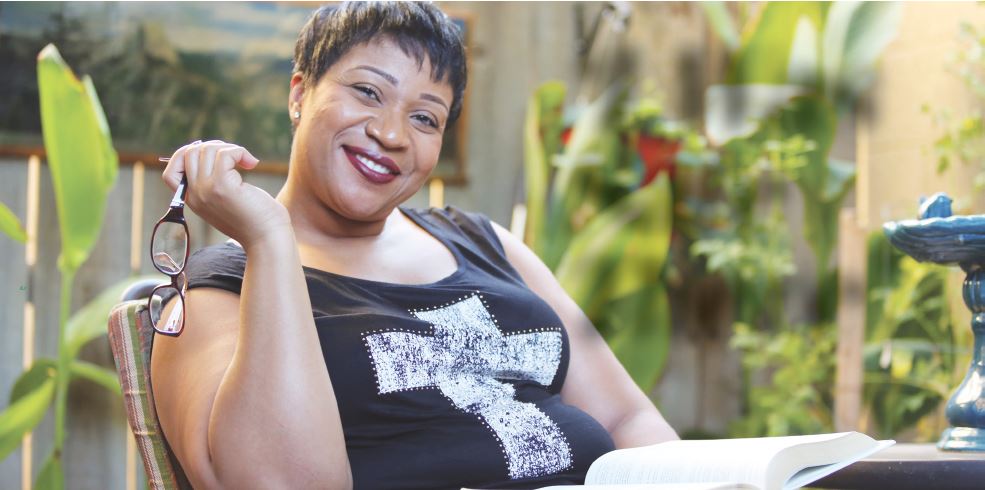Daughter uses writing to cope with mother's mental illness
Growing up, Denise McKendell knew that her mother “was no Carol Brady.” But without any understanding of what mental illness was, Denise just chalked up her mother’s behavior to a misguided belief that she was simply a mean person.
In actuality, her mother suffered from anxiety and paranoia.
Because their mother was generally able to hide her mental illness in public, Denise and her four sisters lived for decades without an official diagnosis. They avoided having friends over to the house and learned to comply with their mother’s strange rules, like the requirement that each person exit the house through the same door they had most recently entered from. Even as Denise and her sisters got older and gained more familiarity with the idea of mental illness, they still didn’t recognize that it was affecting their mother.
“We had no idea that this illness lived within our home, fed us, clothed us, took us to church, could have a husband and friends,” Denise says.
Mental illness doesn’t just impact the person who is ill. It impacts everyone, especially family members. But through education and coping strategies, family members are able to cope with the challenges mental illness presents.
After seeing the movie “The Diary of Anne Frank,” Denise asked for a journal for her 11th birthday, hoping that writing down her feelings might give her some comfort. By age 12 she started to suspect that her mother’s behavior might be more than just a melancholy personality, even writing a letter to God in her journal that read, “Dear God, I think something is wrong with my mommy.”
Denise continued to find comfort from the practice of writing in her journal, begging her older sisters to read books to her every day, often gravitating toward rhyming books and nursery rhymes. She eventually began experimenting with rhyming herself, penning poems in which she could express herself honestly.
“I could curse, yell, hit back and even kill in my writings,” Denise says. “They were the only way I could fight back … It was my secret place where [my mother] couldn’t follow me, torture me, hurt or harm me. I was safe there.”
Journaling continued to be Denise’s main coping strategy, and by high school she had gained a better understanding of her mother’s condition and took on more of a caretaker role in the home. Today, Denise is attending West Hills Community College, where her writing has been published in the school’s literary magazine. She plans to obtain her master’s degree in English literature from Fresno Pacific University.
In actuality, her mother suffered from anxiety and paranoia.
Because their mother was generally able to hide her mental illness in public, Denise and her four sisters lived for decades without an official diagnosis. They avoided having friends over to the house and learned to comply with their mother’s strange rules, like the requirement that each person exit the house through the same door they had most recently entered from. Even as Denise and her sisters got older and gained more familiarity with the idea of mental illness, they still didn’t recognize that it was affecting their mother.
“We had no idea that this illness lived within our home, fed us, clothed us, took us to church, could have a husband and friends,” Denise says.
Mental illness doesn’t just impact the person who is ill. It impacts everyone, especially family members. But through education and coping strategies, family members are able to cope with the challenges mental illness presents.
After seeing the movie “The Diary of Anne Frank,” Denise asked for a journal for her 11th birthday, hoping that writing down her feelings might give her some comfort. By age 12 she started to suspect that her mother’s behavior might be more than just a melancholy personality, even writing a letter to God in her journal that read, “Dear God, I think something is wrong with my mommy.”
Denise continued to find comfort from the practice of writing in her journal, begging her older sisters to read books to her every day, often gravitating toward rhyming books and nursery rhymes. She eventually began experimenting with rhyming herself, penning poems in which she could express herself honestly.
“I could curse, yell, hit back and even kill in my writings,” Denise says. “They were the only way I could fight back … It was my secret place where [my mother] couldn’t follow me, torture me, hurt or harm me. I was safe there.”
Journaling continued to be Denise’s main coping strategy, and by high school she had gained a better understanding of her mother’s condition and took on more of a caretaker role in the home. Today, Denise is attending West Hills Community College, where her writing has been published in the school’s literary magazine. She plans to obtain her master’s degree in English literature from Fresno Pacific University.
MAMA IN ME
BY DENISE MCKENDELL
It’s she I can’t escape night after night in my dreams
No matter how well rehearsed, she controls all the scenes
She goes with me on dates and was present in my marriage
It was her I rolled around in the baby’s carriage
It’s her I see in the mirror each day instead of me
It’s her voice not mine, I hear when I speak
I turn around, she’s there; I fall behind, she’s there
She chooses the food that I eat; she picks my underwear
She’s in the tiny mole on my hand that the two of us share
She’s in my eyes; in my smile; on the strands of my hair
I smell her on my sisters and taste her in my cornbread
I can feel her loneliness at home alone in my bed
She haunts my soul; seems I’ll never escape
She roams the halls of my mind; my conscious has been rapped
No matter how well rehearsed, she controls all the scenes
She goes with me on dates and was present in my marriage
It was her I rolled around in the baby’s carriage
It’s her I see in the mirror each day instead of me
It’s her voice not mine, I hear when I speak
I turn around, she’s there; I fall behind, she’s there
She chooses the food that I eat; she picks my underwear
She’s in the tiny mole on my hand that the two of us share
She’s in my eyes; in my smile; on the strands of my hair
I smell her on my sisters and taste her in my cornbread
I can feel her loneliness at home alone in my bed
She haunts my soul; seems I’ll never escape
She roams the halls of my mind; my conscious has been rapped


 RSS Feed
RSS Feed